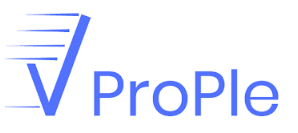This website use cookies to help you have a superior and more relevant browsing experience on the website.
The Gig Economy: An IT Professional’s Perspective on Freelancing in Tech Interviews
-
01/07/2023

Have you ever thought about freelancing as a technical interviewer? If you’re an IT pro, you might want to consider it.
36% of the U.S. workforce is freelancing, and the numbers are expected to rise. The gig economy is changing the way we work, as it has become easier for professionals to work on short-term projects or contracts instead of sticking to one employer.
You can use your skills and expertise to work on different client projects. Also, take on a high-demand role: conducting technical interviews for IT companies.
These companies need experts to evaluate their candidates’ technical abilities and fit for the team and culture. That’s where you come in.
As a freelance technical interviewer, you can work on behalf of these companies and conduct interviews for them.
Let’s examine the gig economy and how it can benefit you as an IT pro.
The Gig Economy: A Definition and Overview
The gig economy is a labor market where people work on short-term projects or contracts instead of having permanent jobs.
Because of modern technology, new platforms have come up that connect freelancers with clients. For example, you can use a platform like Interview Bit to find technical interview gigs.
The gig economy is like a big playground if you’re good with computers. It means you can do different computer jobs for different people. You can:
- Choose the jobs you want to do
- Choose when you want to do them
- Even pick where you want to work from.
For example, imagine you’re good at making computer programs. One month, you might make a cool program for a new tech company. The next month, you might make a website for someone else.
A role that has emerged in this new economy is that of a freelance technical interviewer. IT companies need experts to assess their candidates’ technical skills and fit for the team and culture.
As a freelance technical interviewer, you can conduct interviews on behalf of these companies. Using your previous knowledge and experience, you can
- Ask the right questions
- Evaluate the answers
- Give helpful feedback
Why should you consider this role? Here are some of the benefits.
The Advantages of a Gig Economy Job for IT Professionals
Freelancing as a technical interviewer can offer many advantages that appeal to IT pros. Here are some of them:
1. Flexibility and Freedom
You get to decide:
- Which activities would you like to work
- When you want to work
- Where you want to work from
It’s like being a superhero, but you’re tackling tech projects instead of fighting crime!
For example, if you’re a freelance technical interviewer, you can choose to work with clients in different time zones, allowing you to set a schedule that fits your lifestyle. It can help you achieve a better work-life balance, which many professionals value. Interviewing is great way to keep updated with the new skills and technologies. The latest job descriptions shared by the companies provide you the latest technical trends. Apart from that while interviewing you can take sneak peek the candidates thought process and logic while he is solving a coding challenging, which may give you new prospective altogether.
2. Diverse Experience
Freelancing also allows you to gain diverse experience. Working on different projects with different clients is like going on an adventure. You learn new things, stay updated with the latest tech trends, and expand your skills.
For instance, a freelance software developer can acquire new programming languages and work in multiple industries. It’s like being a tech chameleon, always adapting and growing!
3. Potential for Higher Earnings
Freelancing also allows you to earn more than a traditional job. Your earnings are often based on your output rather than your time. You can charge more for your services if you efficiently and quickly deliver high-quality work.
You can also set your rates, charging a premium for specialized skills or urgent projects.
4. Access to a Broader Market
Digital platforms have simplified the process of connecting with potential clients across the globe. This access to a broader market can lead to more job opportunities.
For instance, a freelance technical interviewer based in the U.S. could conduct interviews for a company in Europe, which would be unlikely in a traditional job setting.
While the gig economy offers numerous benefits, it has challenges.
We have selected a few potential hurdles IT professionals might face when freelancing, like maintaining consistent work, staying up-to-date in a rapidly evolving field, and managing multiple clients.
Understanding these challenges can help IT professionals better prepare for a career in the gig economy and develop strategies to overcome these obstacles.

The Challenges of Working in a Gig Economy
While the gig economy offers numerous advantages, it also presents its own set of unique challenges. Here are some of the most common ones faced by IT professionals:
-
Maintaining Consistent Work
Unlike traditional employment, where you have a consistent paycheck, freelancing can be unpredictable.
Almost 40% of the US workforce now earns at least 40% of their total income through gig work, indicating a significant portion of the workforce is dealing with the ebb and flow of freelance work.
For instance, a freelance technical interviewer might have a busy month with several clients and then face a slow month with fewer interviews to conduct. This inconsistency can make financial planning and stability more challenging for freelancers.
-
Staying Up-to-Date
The IT field constantly evolves, with new technologies and trends emerging regularly. Freelancers must invest time and resources in continuous learning to stay competitive.
For example, a freelance software developer must inherit a new programming language or technology to meet a potential client’s needs.
-
Managing Multiple Clients
Freelancers often juggle multiple clients and projects simultaneously. It can be challenging, as each client may have different expectations and deadlines.
According to a survey, 63% of freelancers agree that having multiple clients reduces their financial instability and requires excellent time management and organizational skills.
Despite these challenges, the gig economy continues to grow and evolve, offering new opportunities for IT professionals.
Let’s recap the transformation of the IT industry by the gig economy and discuss the future of IT professionals in this new labor market.
Navigating the Future of the Gig Economy with Innovative Platforms
The future of the gig economy will continue to reshape the IT industry landscape.
Because of the rise of project-based, flexible work, many opportunities for IT professionals have opened up to leverage their skills.
However, navigating this new labor market also presents its own unique set of challenges.
Innovative platforms are crucial in addressing these challenges and driving the gig economy’s growth. These platforms provide the necessary infrastructure and support to connect IT professionals with companies needing their expertise.
They offer comprehensive solutions designed to meet the needs of the gig economy, from standardizing processes to eliminating bias and saving time and money.
One such platform is VProPle, which offers a comprehensive technical interview service. By outsourcing the technical interview process to platforms like VProPle, companies can leverage the expertise of seasoned professionals flexibly and cost-effectively.
Moreover, these services are highly customizable, allowing the process to be tailored to fit the specific needs of both the companies and the freelance interviewers.
The gig economy is a passing trend and a significant shift in our work. As we move forward, platforms like VProPle will continue to play a pivotal role in shaping the future of the gig economy, offering new opportunities for IT professionals and companies alike.


